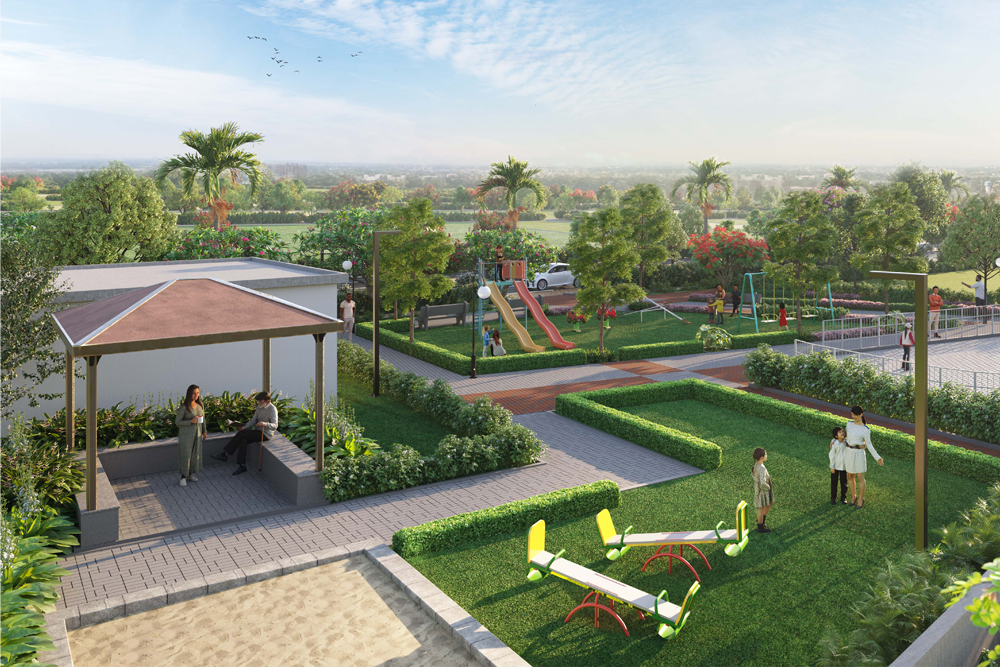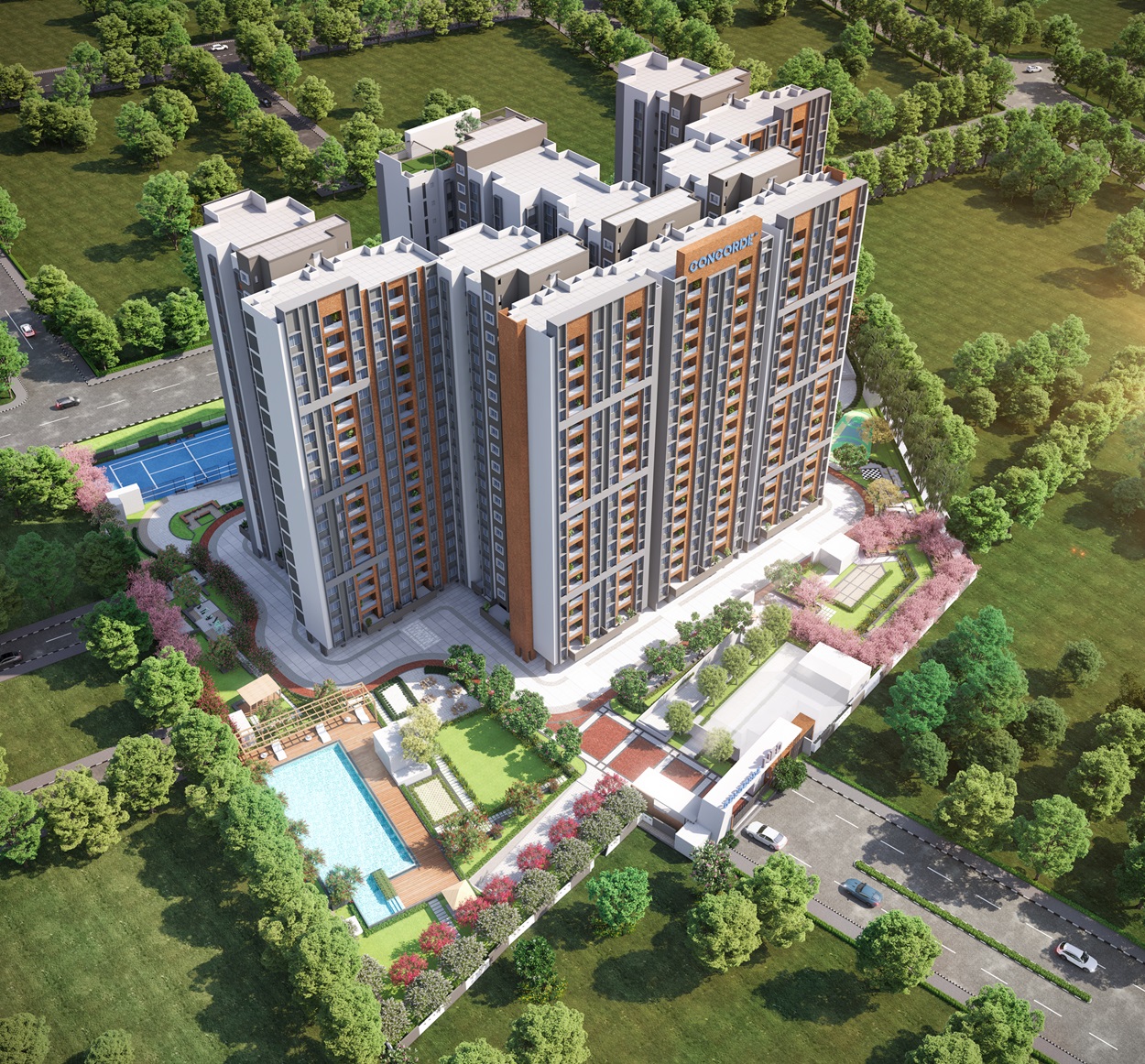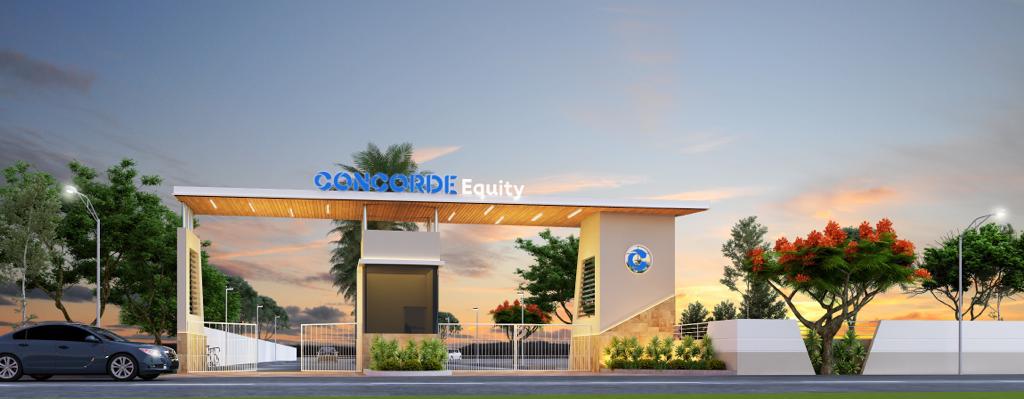- Home
- NRI
NRI

Concorde Eleve
OMR, Whitefield
 3 & 4 BHK Exquisite Residences
3 & 4 BHK Exquisite Residences
 136 Units
136 Units

RERA Number: PRM/KA/RERA/1251/446/PR/210325/007608 https://rera.karnataka.gov.in/

Concorde Northwoods
Hubli
 Plots
Plots
 238 Units
238 Units

RERA Number: PRM/KA/RERA/1259/479/PR/270924/007087 https://rera.karnataka.gov.in/

Concorde Mayfair
On Bellary Road, Yelahanka
 2 & 3 BHK Luxury Apartments
2 & 3 BHK Luxury Apartments
 217 Units
217 Units

RERA Number: PRM/KA/RERA/1251/309/PR/030524/006839 https://rera.karnataka.gov.in/

Concorde Neo
Thanisandra
 2 & 3 BHK Apartments
2 & 3 BHK Apartments
 424 Units
424 Units

RERA Number: PRM/KA/RERA/1251/309/PR/270924/007088 https://rera.karnataka.gov.in/

Concorde Antares
Off Yelahanka, Vidyaranyapura
 2, 3 & 4 Bed Apartments
2, 3 & 4 Bed Apartments
 592 Units
592 Units

RERA Number: PRM/KA/RERA/1251/309/PR/181223/006491 https://rera.karnataka.gov.in/

Concorde Hill Crest
On NH 7 Chikkaballapur, Bangalore North
 Luxury Plotted Development
Luxury Plotted Development
 589 Units
589 Units

RERA Number: PRM/KA/RERA/1254/460/PR/180521/001784, PRM/KA/RERA/1254/460/PR/120922/005232 https://rera.karnataka.gov.in/

Concorde Equity
Off Sarjapur, Malur
 Villa Plots
Villa Plots
 30*40 / 30*50 / 40*60 Plot Dimensions
30*40 / 30*50 / 40*60 Plot Dimensions

RERA Number: PRM/KA/RERA/1265/347/PR/151222/005525 https://rera.karnataka.gov.in/
SERVICES
Owning a wonderful home in India is a fond dream in the mind of almost every Indian living abroad. However, buying a property when you're that far away can be a harrowing experience with the cumbersome process of getting legal documents in order along with approvals of the plan, layout and more. Moreover, first-hand knowledge about the chosen location is key in making your decision a viable investment. Which is why you need a reliable partner, trusted in the industry for over 20 years, by your side as you make your decisions? At Concorde, we are a dedicated team that understands the needs of a non-resident property buyer.
In the unusual event that you need more convincing, consider our accomplishments. For over two decades, the Concorde has been engaged in creating homes that are designed to include all amenities and comforts but more importantly, that are designed with true customer insight. The result is an accomplished portfolio that includes premium residential projects and turnkey solutions for national and multinational clients. With over 8 million sq. ft. of built area including homes, offices, technology parks, malls, hospitality projects and a list of clients including Wipro, Sasken, Future Group, SAP Labs and Toyota, we have made a mark in every dimension of the real estate business.
Our residential projects, be it luxury villas, apartments or penthouses, bring about a perfect marriage between aesthetic designs with functional architecture at premium locations in Bangalore, Pune, Mumbai and Goa. Now if you are interested in a Concorde property, we can help you choose the home of your choice. Please fill out the form below to indicate your preference, give us a few personal details about yourself & someone from our NRI Sales Team will get in touch with you shortly to take things forward.
FAQ
Who is an NRI?
Ans: Under the Foreign Exchange Regulation Act of
1973, Non-Resident Indians are:
Indian citizens who stay abroad for employment or carrying on business or
vocation outside India or for any other purpose in circumstances indicating an
indefinite period of stay abroad; OR
Government servants who are posted abroad on duty with the Indian missions and
similar other agencies set up abroad by the Government of India where the
officials draw their salaries out of Government resources; OR
Government servants deputed abroad on assignments with foreign Governments or
regional/international agencies like the World Bank, International Monetary Fund
(IMF), World Health Organisation (WHO), Economic and Social Commission for Asia
and the Pacific (ESCAP) OR
Officials of the State Government and Public Sector Undertakings deputed abroad
on temporary assignments or posted to their branches or offices abroad.
A foreign citizen is deemed to be of Indian Origin if : i) he held an Indian
Passport at any time or ii) he or his father or paternal grand father was a
citizen of India by virtue of the Constitution of India or the Citizenship Act,
1955. However this does not apply to citizens of Pakistan, Bangladesh,
Afghanistan, Bhutan, Sri Lanka or Nepal.
Buying Process
What should a consumer keep in mind while purchasing a housing flat?
Ans: Some of the factors to consider while purchasing a flat are:
a. Locality i.e. transport, schools, hospitals, market, business district,
entertainment centers, hotels, restaurants, pollution levels
b. Quoted area of the flat i.e. Carpet, Built Up Area and super Built Up
Area
c. Car parking space
d. Quality of construction
e. Reputation of the builder or seller
f. Sufficient water and electric supply, other utilities
g. Cost components: price, stamp duty, registration charges, transfer fees,
monthly outgoings and society charges, costs of utilities
h. Potential for resale or renting out of the property
i. Any other distinguishing features or advantages of the property
Checklist for buying a residential property?
Ans: a. Market Trends about prevalent rates of property in the vicinity and last
known transactions
b. Ask for photocopies of the all deeds of title related to the property to be
purchased. Examine the deeds to establish the ownership of the property by
seller, preferably through an advocate. Ascertain the survey number, village and
registration district of the property, as these details are required for
registration of the sale. Previous encumbrances and loans, if any on the
property must be cleared before completion of purchase of the property. The
title of the Vendor to the property must be clear and marketable.
c. Check for approved layout plan and approved building plan with number of
floors
d. Clearance from Municipality, Electricity, Water, Pollution, Lift
authorities
e. Check the building bye-laws in that area to verify any issue with setback,
side setback, height, etc
f. Confirm transfer fees, stamp duty and registration charges to be paid on
purchase of the property as well as outgoings to be paid for the property i.e.
property tax, water and electricity charges, society charges, maintenance
charges
Do NRI's require consent of Reserve Bank to buy immovable property in India?
Ans: No.
NRI's do not require any permission to buy any immovable property in India other
than agricultural / plantation property or a farmhouse
In what way the purchase consideration for the immovable property should be paid under the general permission?
Ans: The purchase consideration should be met either out of inward remittances in foreign exchange through normal banking channels or out of funds from any non resident accounts maintained with banks in India
Is there any limit on the number of housing properties that may be purchased by an NRI?
Ans: There are no limits on the number of residential properties that may be bought by an NRI. However, repatriation (the process of converting a foreign currency into the currency of one's own country) is allowed only in respect of two such properties.
Can NRI's/PIO's rent out the properties (residential/commercial) if not required for immediate use?
Ans: NRI/PIOs can without restraint rent out their immovable property, whether purchase through application of forex or otherwise, without seeking any consent from the RBI. The rental income being a current account transaction is repatriable outside India, only if proper tax is paid or provided for.
Loan Process
Does RBI have any guidelines for loans to NRI's/PIO's?
Ans:There are guidelines issued by the by the Reserve Bank of India for grant of
Housing Loans to NRIs. The guidelines are:
(a)The loan amount shall not exceed 85% of the cost of the housing unit.
(b)Own contribution, which is the cost of housing unit financed less the loan
amount, can be met from direct remittances from abroad only through normal
banking channels, your Non-Resident (External) [NR (E)] Account and /or
Non-Resident (Ordinary) [NR (O)] account and /or Non-Resident Special Rupee
account [NRSR] in India
(c)Reimbursement of the loan, comprising of the principal and interest including
all the charges are to be remitted from abroad only through normal banking
channels, your Non-Resident (External) [NR (E)] Account and /or Non-Resident
(Ordinary) [NR (O)] account and/or Non-Resident Special Rupee account [NRSR] in
India
Can authorized dealer grant loans to NRIs for purchase of a flat/house for residential intention?
Ans: Authorized dealers have been granted permission to grant loans to NRI's for acquisition of house/flat for self-occupation on their return to India subject to certain conditions Repayment of the loan should be made within a period not exceeding 15 years out of inward remittance through banking channels or out of funds held in the investors' NRE/FCNR/NRO accounts.
Can authorized dealer grant housing loan to NRI's where he is a principal borrower with his resident close relative as a co-applicant / guarantor or where the land is owned jointly by such NRI borrower with his resident close relative?
Ans: Yes. Such housing loans availed in rupees can also be repaid by the close relatives in India of the borrower.
What are the documents I have to submit along with the application?
Ans: The following documents are normally to be submitted along with the
application:
(a) Photocopy of the labor contract and English translation duly countersigned
by your employer
(b) Latest salary certificate (in English) specifying the following: Name (as it
appears in the passport) , Date of joining , Passport Number, Designation ,
Perquisites and salary.
(c) Photocopy of labor card/identity card
(d) Photocopy of valid resident visa stamped on the passport
(e) Photocopy of monthly statement of local bank account for the last 4
months
(f) Property related documents
Can an NRI take loan against the security of immovable property in India? Are there any restrictions on the use of loan amount?
Ans:An NRI can borrow against the security of immovable property from Authorized
Dealer subject to following conditions:
i) The loan should be used for meeting the personal requirements or for
borrower's own business purposes; and
ii) ii) loan should not be used for forbidden activities, namely; (a) business
of chit fund, or (b) agriculture or plantation
activities or in real estate business, or construction of farm houses, or (c)
trading in Transferable Development Rights (TDRs)
(c) iii) the loan amount cannot be remitted outside India
(d) iv) repayment of loan shall be made from out of remittances from overseas or
by debit to NRE/FCNR/NRO account or out of the sale profits of shares or
securities or immovable property against which such loan was granted
What kinds of incentive can NRIs, PIOs and foreigners look forward to in the Indian real estate industry that favours investment?
Ans: The relaxation of FDI in the construction development sector announced in
March 2006 allows NRIs, PIOs and all foreigners equal opportunity with their
Indian counterparts in the Indian real estate sector. The new guidelines states
that before selling, the site has to be developed, constructed upon or fulfill
the criteria of minimum one year development.
i) NRIs, PIOs and foreigners can now invest in land, buy it, construct upon it
or develop it, sell constructed buildings/developed plots
ii) FDI through automatic route can also flow in not just for the housing
sector, but also for townships, housing, commercial area, and infrastructure
development
iii) Restrictions on minimum area of land, minimum number of units has been
removed
iv) Minimum constructed area required is 50, designated area is 25 acres
Is there any specific target to actually complete your construction development work?
Ans: The norms are quite liberal. It allows you five years to finish at least 50% of your project from the date of getting all the clearances. In normal circumstances the project can be completed within three years. It helps protect the customer and keeps fly-by-night people at bay.
How does the automatic route work?
Ans: The automatic route has simplified much of the cumbersome investment process. Approval from the Reserve Bank is not required anymore. No need to go to the Foreign Investment Promotion Board either. The easing of paper work and relaxation of formalities has given a boost to overseas investor confidence for investing in India.
What aspects should overseas investors look at in the Indian real estate market to facilitate the suitability of their projects?
Ans: Any NRI before investing in the Indian real estate should also focus on the particular segment that he plans to invest in - like residential, retail or office space. Consulting legal firms and real estate firms providing professional NRI services can be very useful.
What are the steps an NRI should follow for getting all the clearances in a hassle-free manner? Whom should one meet in the process?
Ans: A lot depends on the segment you want to invest in. It helps to gauge the
future state and to know what utilities are available.
i) An office market investment, for instance, requires you to:
ii) Get in touch with consultants for advice on the city of choice
iii) Outline your objectives, the size of your investments
iv) Have an approximate of the returns you are expecting.
v) The yield that has evolved from distinct parameters ranges between of 8 -
8.5% to 12% for office space and 4% - 6% in residential
vi) Whether the land is for investment or for development is also a deciding
factor, as is the local demand-supply situation While investing in India, the
availability and quality of infrastructure or utilities like power,
connectivity, security and long-term future plans need to be scrutinized.
Is a single window clearance possible?
Ans: Single window in a real estate project in India sometimes may be difficult, because of the involvement of several authorities. If it's a multi-storied building, you need to get clearance from town planning authorities, clearance on design, elevators, fire fighting agencies, etc. Efforts are on to make the process simpler and transparent, though.
Do joint ventures call for better possibilities rather than unfair competition?
Ans: Healthy competition is important and necessary. However, in the case of FDI, joint venture definitely seems the wiser route to take as it has tremendous scope. The Indian partner would always be in a better position to provide inputs in terms of information on land and clearances, where the foreign investors can put their money, use technology judiciously and opportunities where both can complement each other.
Does that signify that, joint ventures best investment option in Indian real estate development?
Ans: Currently, as big foreign investors are foraying into India, their main interests have been in joint ventures. The first couple of transactions or strategies have gone this way and large joint ventures have been struck. Trends show that in the initial years, FDI inflow into real estate in India will come through joint ventures. Efforts to improve infrastructure and speed up reform processes, better tax rules, computerization of land records and more transparency have ensured enhanced investments and developments in the Indian real estate industry
What two or three major things would catapult development in the next 5 to 10 years?
Ans: The response received post relaxation of FDI in the construction and
development sector has been very optimistic. This can be seen as a catalyst to
investment as it would have a multiplier effect on the economy. Other sectors
that will receive a boost include:
(a) Technology, associated infrastructure that will be built.
(b) Growth of associated industries such as steel, cement, building material,
designers, etc.
(c) Job opportunities for unskilled, semi-skilled workers, artisans, engineers,
architects and the like.
Some information about Investment Property and Rental Income?
Ans:NRIs can freely rent out property (source of acquisition of property not
significant)
(a) Freely repatriate rental income without prior permission.
(b) Tax deducted at source on rental income, adjust rental income against home
loans If loan amount is higher, pay through NRE, NRO and FCNR accounts.
(c) Short term Capital Gains - property held for less than 3 years.
(d) Long term Capital gains - property held for more than 3 years
(e) NRIs/PIOs can take the advantage of indexing the cost of acquisition and
improvement, investing of sale proceeds in special Bonds
(f) On deciding to sell the rental property the NRI can apply to the Income tax
authorities for the certificate to be deducted at source
RBI GUIDELINES
RBI Guidelines specific to Investment in Immovable Property for Non Resident Indians (NRIs) and Persons of Indian Origin (PIOs)
NOTE: The below stated information has been taken from the FAQs section of the Reserve Bank of India, which was last updated on the 6th April 2011. We aim to keep updating this section with relevant information from time to time, however to ensure you have the latest information, you may also visit – rbi.org. In terms of the Foreign Exchange Management Act (FEMA), 1999 a person resident outside India means a person who is not resident in India.
What are the different types of accounts which can be maintained by an NRI1/ PIO2 in India?
If a person is NRI or PIO, s/he can, without the permission from the Reserve Bank, open, hold and maintain the different types of accounts given below with an Authorised Dealer in India, i.e., a bank authorised to deal in foreign exchange. NRO Savings accounts can also be maintained with the Post Offices in India. However, individuals/ entities of Bangladesh and Pakistan require the prior approval of the Reserve Bank.
Types of accounts which can be maintained by an NRI / PIO in India
A. Non-Resident (Ordinary) Rupee Account (NRO Account).
- Savings Account - Normally maintained for crediting legitimate dues /earnings / income such as dividends, interest etc.The interest rates on NRO Savings deposits shall be at the rate applicable to domestic savings deposits. Currently the interest rate is 3.5 per cent.
- Term Deposits - Banks are free to determine the interest rates.
- Account should be denominated in Indian Rupees.
- Permissible credits to NRO account are transfers from rupee accounts of non-resident banks, remittances received in permitted currency from outside India through normal banking channels, permitted currency tendered by account holder during his temporary visit to India, legitimate dues in India of the account holder like current income like rent, dividend, pension, interest, etc., sale proceeds of assets including immovable property acquired out of rupee/foreign currency funds or by way of legacy/ inheritance.
- Eligible debits such as all local payments in rupees including payments for investments as specified by the Reserve Bank and remittance outside India of current income like rent, dividend, pension, interest, etc., net of applicable taxes, of the account holder.
- NRI/PIO may remit from the balances held in NRO account an amount not exceeding USD one million per financial year, subject to payment of applicable taxes
- The limit of USD 1 million per financial year includes sale proceeds of immovable properties held by NRIs/PIO.
- The accounts may be held jointly with residents and / or with non-resident Indian.
- The NRO account holder may opt for nomination facility.
- NRO (current/savings) account can also be opened by a foreign national of non-Indian origin visiting India, with funds remitted from outside India through banking channel or by sale of foreign exchange brought by him to India. The details of this facility are given in the FAQs on “Accounts opened by Foreign Nationals and Foreign Tourists” available on the RBI website.
- Loans to non-resident account holders and to third parties may be granted in Rupees by Authorized Dealer / bank against the security of fixed deposits subject to certain terms and conditions.
B. Non-Resident (External) Rupee Account (NRE Account)
- NRE account may be in the form of savings, current, recurring or fixed deposit accounts. Such accounts can be opened only by the non-resident himself and not through the holder of the power of attorney.
- NRE accounts cannot be held jointly with residents.
- Account will be maintained in Indian Rupees.
- Balances held in the NRE account are freely repatriable.
- Accrued interest income and balances held in NRE accounts are exempt from Income tax and Wealth tax, respectively.
- Authorised dealers/authorised banks may at their discretion/commercial judgement allow for a period of not more than two weeks, overdrawings in NRE savings bank accounts, up to a limit of Rs.50,000 subject to the condition that such overdrawings together with the interest payable thereon are cleared/repaid within a period of two weeks, out of inward remittances through normal banking channels or by transfer of funds from other NRE/FCNR accounts.
- Savings - The interest rates on NRE Savings deposits shall be at the rate applicable to domestic savings deposits. Currently the interest rate is 3.5%.
- Term deposits – The interest rates are stipulated by the Department of Banking Operations and Development, Reserve Bank of India. At present, with effect from the close of business in India on November 15, 2008, interest rates on NRE deposits for one to three years should not exceed the LIBOR/SWAP rates plus 175 basis points, as on the last working day of the previous month, for US dollar of corresponding maturities.
- The interest rates as determined above for three year deposits will also be applicable in case the maturity period exceeds three years.
- Permissible credits to NRE account are inward remittance to India in permitted currency, proceeds of account payee cheques, demand drafts / bankers' cheques, issued against encashment of foreign currency, where the instruments issued to the NRE account holder are supported by encashment certificate issued by AD Category-I / Category-II, transfers from other NRE / FCNR accounts, interest accruing on the funds held in such accounts, interest on Government securities/dividends on units of mutual funds purchased by debit to the NRE/FCNR(B) account of the holder, certain types of refunds, etc.
- Eligible debits are local disbursements, transfer to other NRE / FCNR accounts of person eligible to open such accounts, remittance outside India, investments in shares / securities/commercial paper of an Indian company, etc.
- Loans up to Rs.100 lakh can be extended against security of funds held in NRE Account either to the depositors or third parties.
- Such accounts can be operated through power of attorney in favour of residents for limited purpose of withdrawal of local payments or remittances through normal banking channels to the account holder himself.
C. Foreign Currency Non Resident (Bank) Account – FCNR (B) Account
- FCNR (B) accounts are only in the form of term deposits of 1 to 5 years
- All debits / credits permissible in respect of NRE accounts are permissible in FCNR (B) accounts also.
- Account can be in Pound Sterling, US Dollar, Japanese Yen, Euro, Canadian Dollar and Australian Dollar
- In case the depositor with any convertible currency other than designated currency desires to place a deposit in these accounts, authorised dealers may undertake with the depositor a fully covered swap in that currency against the desired designated currency. Such a swap may also be done between two designated currencies.
- Loans up to Rs.100 lakh can be extended against security of funds held in FCNR(B) deposit either to the depositors or third parties.
- The interest rates are stipulated by the Department of Banking Operations and Development, Reserve Bank of India. At present, in respect of FCNR (B) deposits of all maturities contracted effective from the close of business in India as on November 15, 2008, interest shall be paid within the ceiling rate of LIBOR / SWAP rates plus 100 basis points for the respective currency/corresponding maturities (as against LIBOR/SWAP rates plus 25 basis points effective from close of business on October 15, 2008).On floating rate deposits, interest shall be paid within the ceiling of SWAP rates for the respective currency / maturity plus 100 basis points. For floating rate deposits, the interest reset period shall be six months.
- When an account holder becomes a person resident in India, deposits may be allowed to continue till maturity at the contracted rate of interest, if so desired by him.
- Terms and conditions as applicable to NRE accounts in respect of joint accounts, repatriation of funds, opening account during temporary visit, operation by power of attorney, loans/overdrafts against security of funds held in accounts, shall apply mutatis mutandis to FCNR (B).
Is the permission of the Reserve Bank required for opening the various accounts, mentioned above, by Bangladesh / Pakistan individuals/entities?
Opening of accounts by individuals/entities of Bangladesh / Pakistan nationality requires prior approval of the Reserve Bank. All such requests may be referred to the Chief General Manager-in-Charge, Foreign Exchange Department, Foreign Investment Division, Reserve Bank of India, Central Office, Mumbai - 400 001.
Can an individual resident borrow money from his close relatives outside India?
Yes, an individual resident can borrow sum not exceeding USD 250,000 or its
equivalent from his close relatives3 staying outside India, subject to the
conditions that:
i) the minimum maturity period of the loan is one year;
ii) the loan is free of interest; and
iii) the amount of loan is received by inward remittance in free foreign
exchange through normal banking channels or by debit to the NRE/FCNR account of
the NRI.
What are the other facilities available to NRIs/PIO?
Investment facilities for NRIs
A.NRI may, without limit, purchase on repatriation basis:
- Government dated securities / Treasury bills
- Units of domestic mutual funds;
- Bonds issued by a public sector undertaking (PSU) in India.
- Non-convertible debentures of a company incorporated in India.
- Perpetual debt instruments and debt capital instruments issued by banks in India
- Shares in Public Sector Enterprises being dis-invested by the Government of India, provided the purchase is in accordance with the terms and conditions stipulated in the notice inviting bids.
- Shares and convertible debentures of Indian companies under the FDI scheme (including automatic route & FIPB), subject to the terms and conditions specified in Schedule 1 to the FEMA Notification No. 20/2000- RB dated May 3, 2000, as amended from time to time.
- Shares and convertible debentures of Indian companies through stock exchange under Portfolio Investment Scheme, subject to the terms and conditions specified in Schedule 3 to the FEMA Notification No. 20/2000- RB dated May 3, 2000, as amended from time to time.
B.NRI may, without limit, purchase on non-repatriation basis :
- Government dated securities / Treasury bills
- Units of domestic mutual funds
- Units of Money Market Mutual Funds
- National Plan/Savings Certificates
- Non-convertible debentures of a company incorporated in India
- Shares and convertible debentures of Indian companies through stock exchange under Portfolio Investment Scheme, subject to the terms and conditions specified in Schedules 3 and 4 to the FEMA Notification No. 20/2000- RB dated May 3, 2000, as amended from time to time.
- Exchange traded derivative contracts approved by the SEBI, from time to time, out of INR funds held in India on non-repatriable basis, subject to the limits prescribed by the SEBI.
Note: NRIs are not permitted to invest in small savings or
Public Provident Fund (PPF). B. Investment in immovable Property
NRI / PIO4 / Foreign National who is a person resident in India (citizen of
Pakistan, Bangladesh, Sri Lanka, Afghanistan, China, Iran, Nepal and Bhutan
would require prior approval of the Reserve Bank) may acquire immovable property
in India other than agricultural land/ plantation property or a farm house out
of repatriable and / or non-repatriable funds.
The payment of purchase price, if any, should be made out of
(i) funds received in India through normal banking channels by way of inward
remittance from any place outside India or
(ii) funds held in any non-resident account maintained in accordance with the
provisions of the Act and the regulations made by the Reserve Bank.
Note: No payment of purchase price for acquisition of immovable property shall
be made either by traveller’s cheque or by foreign currency notes or by other
mode other than those specifically permitted as above.
- NRI may acquire any immovable property in India other than agricultural land / farm house plantation property, by way of gift from a person resident in India or from a person resident outside India who is a citizen of India or from a person of Indian origin resident outside India.
- NRI may acquire any immovable property in India by way of inheritance from a person resident outside India who had acquired such property in accordance with the provisions of the foreign exchange law in force at the time of acquisition by him or the provisions of these Regulations or from a person resident in India.
- An NRI may transfer any immovable property in India to a person resident in India. NRI may transfer any immovable property other than agricultural or plantation property or farm house to a person resident outside India who is a citizen of India or to a person of Indian origin resident outside India.
In respect of such investments, NRIs are eligible to repatriate:
- The sale proceeds of immovable property in India if the property was acquired out of foreign exchange sources i.e. remitted through normal banking channels / by debit to NRE / FCNR (B) account.
- The amount to be repatriated should notexceed the amount paid for the property in foreign exchange received through normal banking channel or by debit to NRE account (foreign currency equivalent, as on the date of payment) or debit to FCNR (B) account.
- In the event of sale of immovable property, other than agricultural land / farm house / plantation property in India, by NRI / PIO, the repatriation of sale proceeds is restricted to not more than two residential properties subject to certain conditions.
- If the property was acquired out of Rupee sources, NRI or PIO may remit an amount up to USD one million per financial year out of the balances held in the NRO account (inclusive of sale proceeds of assets acquired by way of inheritance or settlement), for all the bonafide purposes to the satisfaction of the Authorized Dealer bank and subject to tax compliance.
- Refund of (a) application / earnest money / purchase consideration made by house-building agencies/seller on account of non-allotment of flats / plots and (b) cancellation of booking/deals for purchase of residential/commercial properties, together with interest, net of taxes, provided original payment is made out of NRE/FCNR (B) account/inward remittances.
Repayment of Housing Loan of NRI / PIOs by close relatives of
the borrower in India
Housing Loan in rupees availed of by NRIs/ PIOs from ADs / Housing Financial
Institutions in India, can be repaid by the close relatives in India of the
borrower.
C. Facilities to returning NRIs/PIO
Returning NRIs/PIO may continue to hold, own, transfer or invest in foreign currency, foreign security or any immovable property situated outside India, if such currency, security or property was acquired, held or owned when resident outside India
Foreign Currency Account
A person resident in India who has gone abroad for studies or who is on a visit
to a foreign country may open, hold and maintain a Foreign Currency Account with
a bank outside India during his stay outside India, provided that on his return
to India, the balance in the account is repatriated to India. However, short
visits to India by the student who has gone abroad for studies, before
completion of his studies, shall not be treated as his return to India.
A person resident in India who has gone out of India to participate in an
exhibition/trade fair outside India may open, hold and maintain a Foreign
Currency Account with a bank outside India for crediting the sale proceeds of
goods on display in the exhibition/trade fair. However, the balance in the
account is repatriated to India through normal banking channels within a period
of one month from the date of closure of the exhibition/trade fair.
Resident Foreign Currency Account
- Returning NRIs /PIOs may open, hold and maintain with an authorised dealer in India a Resident Foreign Currency (RFC)
- Account to transfer balances held in NRE/FCNR(B) accounts.
- Proceeds of assets held outside India at the time of return, can be credited to RFC account.
- The funds in RFC accounts are free from all restrictions regarding utilisation of foreign currency balances including any restriction on investment in any form outside India.
- RFC accounts can be maintained in the form of current or savings or term deposit accounts, where the account holder is an individual and in the form of current or term deposits in all other cases.
1. A Non Resident Indian (NRI) is a person resident outside India, who is a citizen of India or is a person of Indian origin. 2. A Person of Indian Origin (PIO) for this purpose is defined in Regulation 2 of FEMA Notification ibid as a citizen of any country other than Bangladesh or Pakistan, if (a) he at any time held Indian passport; or (b) he or either of his parents or any of his grandparents was a citizen of India by virtue of the Constitution of India or the Citizenship Act, 1955 (57 of 1955); or (c) the person is a spouse of an Indian citizen or a person referred to in sub-clause (a) or (b). 3. 'Close relative' means relative as defined in Section 6 of the Companies Act, 1956. 4. 'A Person of Indian Origin' means an individual (not being a citizen of Pakistan or Bangladesh or Sir Lanka or Afghanistan or China or Iran or Nepal or Bhutan) who (i) at any time, held an Indian Passport or (ii) who or either of whose father or mother or whose grandfather or grandmother was a citizen of India by virtue of the Constitution of India or the Citizenship Act, 1955 (57 of 1955).

